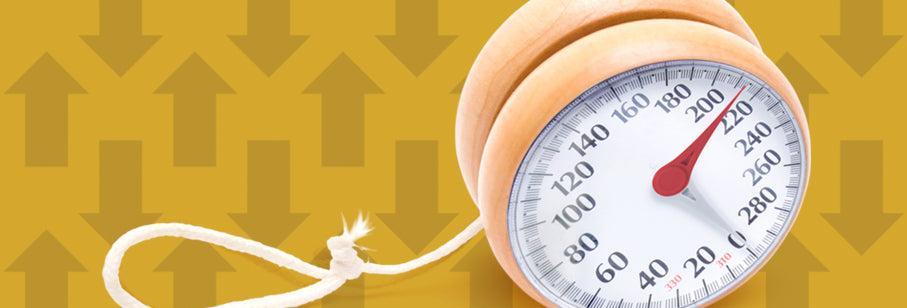This covid thing is crazy, right? Cooped up at home, gyms are just starting to re-open, and the tendency to snack is, shall we say, more pronounced. In fact, there have been a number of reports indicating that weight gain has been an underlying issue for many during the past six months.
Wanting to lose bodyfat brings with it the temptation to chase “fast results”, and that almost always means cutting calories. Sure cutting junk calories is a good idea, but cutting calories hard is not a long term solution––in fact, it backfires.
One of the dangers of crash (low-calorie) dieting is the unavoidable metabolic slowdown that can drop your metabolic rate 15 to 30 percent. This slowdown can begin within just a few days of cutting calories; however, your metabolism can stay suppressed even after you add calories back into your diet. That means you can rebound after the diet and end up with more fat (in terms of body composition) than when you started––not good.
That’s not all. Your body also produces an enzyme called lipoprotein lipase (LPL), whose main goal is to store body fat. When you diet, the levels of LPL increase because your body is trying to find fat to store. As soon as your caloric level comes up just a bit or returns to what it was before the diet started, LPL has a field day, storing fat in great amounts.
Unfortunately, that’s still only part of the story. The human body has amazing adaptive and “learning” capabilities. In the face of intermittent “dieting” (caloric restriction) your body learns to adapt. How will it adapt to a metabolism that is constantly being slowed down? It will stay slowed down until stimulated to do otherwise. How does it adapt to LPL levels continually being increased? LPL will remain high until the metabolic rate gradually corrects itself (with proper diet and exercise). This is precisely why repeated cycles of yo-yo or crash dieting tend to cause the body to resist fat loss, and instead, get better at fat storage.
In addition, researchers have found that yo-yo diets can affect you psychologically as well. Participants reported that regaining weight adversely affected their physical and psychological health in numerous ways. In this study, yo-yo weight gains were associated with poorer perceived appearance, as well as lower self-esteem, self-confidence, and general level of happiness.
Carbohydrates are the energy source the body prefers for anaerobic exercise, such as weight training, cross fit type workouts, or any other form of higher intensity training. Biochemically, carbs are set up to burn very rapidly and efficiently. Proteins can also be used as an energy source as they can be converted to simple sugars and utilized for energy very rapidly––however, this can be at the expense of hard-earned muscle tissue. If you don’t eat enough carbs, or you don’t give your body enough energy, your metabolic rate will also slow down, even if you are eating the same number of calories!
Fat is stored in adipose tissue, most of which is located subcutaneously (just under the skin). When needed for longer term energy production, fat has to be mobilized into the bloodstream mostly in the form of triglycerides, which are then moved into the cells and broken down for a slower burning, longer lasting source of energy. That’s a lengthy process and requires a great deal of time and oxygen. So, the body tends to use the other more readily available energy sources (carbs and proteins) first, especially in anaerobic conditions when oxygen isn’t available.
YO-YO DIETING TENDS TO ALTER YOUR BODY COMPOSITION AND REDISTRIBUTE FAT
Men tend to have an upper-body or abdominal distribution of fat, while women usually have a genetic tendency to deposit more body fat in the area of the hips and thighs. Since yo-yo dieting will negatively alter the way your body stores fat in the future, as well as the way that it distributes the fat that it currently has, we want to establish a means of reducing body fat by creating a caloric deficit, while still eating relatively the same number of calories a day. We wouldn’t want to slow down our metabolic rate by eating less food.
Eat smart, have fun training & exercising and stay strong!
Please Let Us Know If You Enjoyed This Article.
Your Feedback Is Important To Us
Disclaimer: This content is for informational purposes only and is not meant as medical advice, nor is it to diagnose or treat any medical condition. Please consult your physician before starting or changing your diet or exercise program. Any use of this information is at the sole discretion and responsibility of the user.













